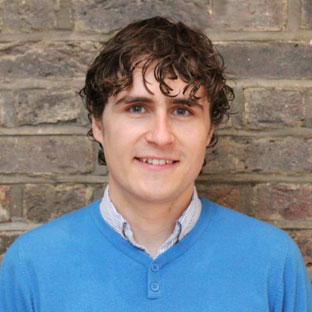Seeing bumble bees fly around Auckland seemed a perfect metaphor for my trip to the city. Like me, these busy little critters had been shipped from the UK to New Zealand to serve a very specific purpose; they to pollinate red clover and me to pollinate The Global Education Leaders Programme (GELP) with the ideas of the RSA.
This twice-yearly conference brings together educational system leaders and practitioners from around the world; providing a safe space to think, prototype and develop new ideas for how we can move global education forward. At this conference we focused on three keys ideas; the purpose of learning; the shared responsibility for learning and Innovative learning environments. Each of these fed onto the overall theme of the conference, decided by our New Zealand hosts- Ngā Kāwai Hono- where the web of relationships and virtual connections meet. This theme was a perfect example of the way that New Zealand education seems to be focused- putting the people first.
I am happy to say that I left the conference utterly exhausted. Each session was carefully designed to take you to that wonderful place outside of your comfort zone and help you acclimatise to the new, the exciting and the radical. By far the most challenging session for me was the panel discussion on indigenous knowledge. The panel, made up of people from a variety of cultures and nationalities, talked about the power of cultural and traditional knowledge and how mainstream education systems could learn a lot from these alternative methodologies. The point here was not that we in the UK should suddenly all adopt a Maori medium education but rather that we all need to reconnect with our own indigenous knowledge. For someone brought up in modern Britain, trying to understand what indigenous knowledge means in my own context is pretty challenging, but I’m excited to start exploring the question and trying to understand what it might mean for education here in the UK.
I found myself further challenged when I went on a visit of Auckland schools. The New Zealand National curriculum has done away with the need for subjects altogether, opting instead to provide a set of key competencies that can (if you have the vision) be combined to build lessons that no one has ever heard of. At Hobsonville Point you don’t just do science and maths but can also study “Algebra and Dystopian literature” or “The Art of Biology”. These learning modules, as they call them, offer pupils the opportunity to set knowledge in the sort of combined contexts that they will encounter it in the real world, making it more challenging, engaging and useful. What was most intriguing about this, and the other similar schools I visited, was not that they were pursuing such an innovative agenda but that they weren’t a radical outlier. In New Zealand, innovative schools are the blueprint for their future.
The most important thing I learned from my experience in New Zealand was not a specific strategy for educational reform. It was simple hope. What I saw in New Zealand, and heard about from my colleagues at GELP showed me that the story of disempowered teachers, knowledge-driven curricula and examination obsession is not the only one available. On the 48-hour journey home, I couldn’t sleep a wink. The whole time my mind was racing with new ideas, schemes and designs for how the RSA and its Innovative Education network are going to disrupt the dominant educational narrative. So, just like the industrious bumble, I’ll be working hard to make these ideas bloom.
Get involved with RSA: Innovative Education
The RSA wants schools and colleges to tackle ingrained inequality and prepare young people for the economy of the future. We believe that the best way to do this is to put power back into the hands of the educators and give them space to be creative. You can join the RSA in our mission to do just this:
JOIN THE INNOVATIVE EDUCATION NETWORK
BECOME A SCHOOL GOVERNOR OR TRUSTEE
TELL US ABOUT YOUR INNOVATIVE EDUCATION IDEA
Follow Innovative Education @RSA_IE
Follow Tom Gilliford @Tom_gilliford
Related articles
-
The importance of the Relational Teacher…
Ben Gibbs FRSA
The driving force behind the Relational Schools Project is to build a stronger, more connected, and more compassionate society by starting with relationships in schools.


Be the first to write a comment
Comments
Please login to post a comment or reply
Don't have an account? Click here to register.